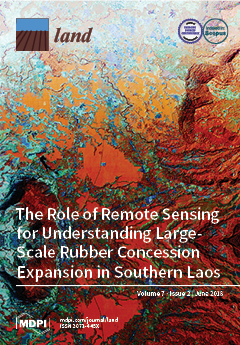Resource information
The understanding of multiple effects by possible future development is essential for adapted land use planning. This study assessed the potential of land use scenarios for the provision of ecosystem services using local knowledge in two districts of northern Ghana. Local knowledge was gathered through surveys with extension officers, who are regarded as eligible knowledge holders for agricultural land use. Firstly, ecosystem services that were perceived as important by the stakeholders were identified, namely food, fodder, energy, construction materials, marketable products, water provision, and erosion control. Quantitative indicators were then determined to analyze the capacity of land use types to supply the ecosystem services. Land use scenarios were developed based on their applicability and capacity to mitigate climate change impacts. The perception of stakeholders was applied to evaluate changes in ecosystem services provision by the scenarios. A modeling approach for a spatially explicit simulation was used to assess the potential to provide ecosystem services at a district level. The results reflected the different trade-offs and synergies between ecosystem services of each scenario, depending on the district. Along with the local perception, characteristics of land use patterns also influenced the regional potential of ecosystem services provision.


